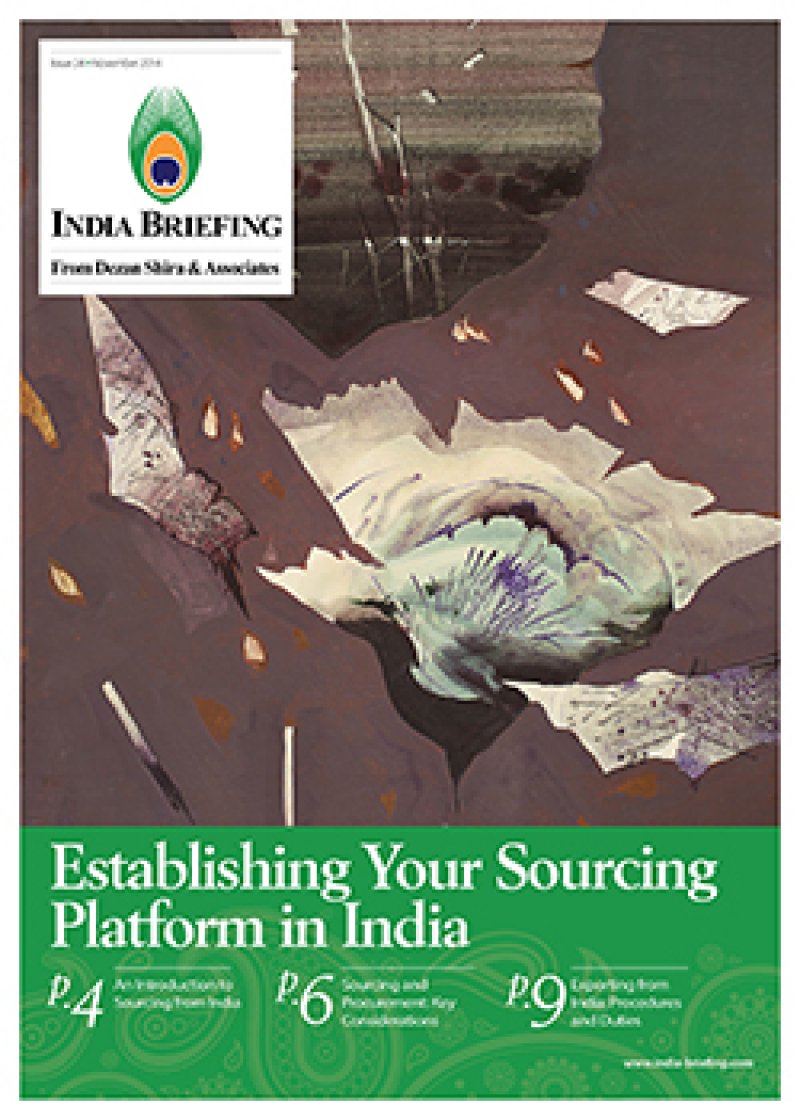Types of Audit and Audit Reporting in India
For any foreign executive operating in India, it is beneficial to have a basic understanding of audit procedures in the country. We have previously introduced audit in India for non-auditors. In this article, we provide an overview of the different types of audit and audit reporting in India.
Audits are generally classified into two types:
- Statutory audits; and
- Internal audits.
Statutory audits are conducted in order to report the state of a company’s finances and accounts to the Indian government. Such audits are performed by qualified auditors who are working as external and independent parties. The audit report of a statutory audit is made in the form prescribed by the government department.
Internal audits are conducted at the bequest of internal management in order to check the health of a company’s finances and analyze the operational efficiency of the organization. Internal audits may be performed by an independent party or by the company’s own internal staff.
As per India’s Companies Act, 2013, the following companies must have an internal auditing system.
1. Every company whose shares are registered on the stock exchange.
2. Companies whose shares are not listed on the stock exchange and have:
- Paid up share capital of Rs 500 million (US$6.7 million) or more during the preceding financial year;
- Turnover of Rs 2 billion (US$26.9 million) or more during the preceding financial year;
- Outstanding loans or borrowings from banks or public financial institutions exceeding Rs 1 billion (US$13.4 million) or more at any point in time during the preceding financial year; or
- Outstanding deposits of Rs 250 million (US$3.3 million) or more at any point in time during the preceding financial year.
3. Every private company with:
- Turnover of Rs 2 billion (US$26.9 million) or more during the preceding financial year; or
- Outstanding loans or borrowings from banks or public financial institutions exceeding Rs 1 billion (US$13.4 million) or more at any point in time during the preceding financial year.
The statutory auditor of the company must report on the internal auditing system of the company in the audit report.
Statutory audits in India
In India, statutory audits are conducted for each fiscal year (April 1 to March 31) and not the calendar year. The two most common types of statutory audits in India are:
- Tax audits; and
- Company audits.
Tax audits
Tax audits are required under Section 44AB of India’s Income Tax Act 1961. This section mandates that every person whose business turnover exceeds Rs 10 million (US$ 134,508) in any previous year, and every person working in a profession with gross receipts exceeding Rs 5 million (US$ 67,254) must have their accounts audited by an independent chartered accountant.
It should be noted that the provision of tax audits are applicable to everyone, be it an individual, a partnership firm, a company or any other entity. The tax audit report is to be obtained by September 30 after the end of the previous fiscal year. Non-compliance with the tax audit provisions may attract a penalty of 0.5 percent of turnover or Rs 100,000 (US$1,345), whichever is lower.
There are no specific rules regarding the appointment or removal of a tax auditor.
Company audits
The provisions for a company audit are contained in the Companies Act, 2013. Every company, irrespective of its nature of business or turnover, must have its annual accounts audited each financial year. For this purpose, the company and its directors have to first appoint an auditor at the outset.
Thereafter, at each annual general meeting (AGM), an auditor is appointed by the shareholders of the company who will hold the position from one AGM to the conclusion of the next AGM.
The Companies (Amendment) Act, 2017 provides that auditors can be appointed for a term of five consecutive AGMs and their appointment need not be ratified in each of the AGMs. Individuals and partnership firms, auditors cannot be appointed for more than one or two terms, respectively. After the completion of the term, the auditor must be changed.
Only an independent chartered accountant or a partnership firm of chartered accountants can be appointed as the auditor of a company. The following persons are specifically disqualified from becoming an auditor per the Companies Act:
- A body corporate;
- An officer or employee of the company;
- A person who is a partner with an employee of the company or employee of an employee of the company;
- Any person who is indebted to a company for a sum exceeding Rs 1,000 (US$13) or who have guaranteed to the company on behalf of another person a sum exceeding Rs 1,000 (US$13); or
- A person who has held any securities in the company after one year from the date of commencement of the Companies (Amendment) Act, 2000.
The auditor is required to prepare the audit report in accordance with the Company Auditor’s Report Order (CARO), 2016.
CARO requires an auditor to report on various aspects of the company, such as fixed assets, inventories, internal audit standards, internal controls, statutory dues, among others.
The audit report must be obtained before holding the AGM, which itself should be held within six months from the end of the financial year.
Audit reporting
Audits are conducted to express a true and fair view of a company’s financial statements. Therefore, the auditor’s opinion expressed in the ultimate report is based on the information reviewed and analyzed during the verification of financial statements. Upon completing the report, the auditor may express one of the following four opinions:
- Unqualified opinion;
- Qualified opinion;
- Disclaimer of opinion; and
- Adverse opinion.
Unqualified opinion
When an independent auditor concludes that the financial records and statements of a company are present fairly and appropriately, in accordance with the financial reporting framework, the judgment is called an unqualified opinion.
An unqualified opinion generally indicates the following points:
- Generally accepted accounting principles (GAAP) are consistently applied in the preparation of financial statements;
- Financial statements comply with the relevant statutory requirements and regulations;
- There is adequate disclosure of all material matters relevant to the proper presentation of financial information (subject to statutory requirements); and
- If there are any changes in the accounting principles or in the application method, then it has been properly checked and determined in the financial statement of the company.
Qualified opinion
An auditor expresses a qualified opinion when according to him or her, the financial statements of the company – as a whole – are not free from material misstatements, and the misstatements are material but not pervasive in nature.
The effect of misstatement is material when information with such misstatement can affect the decisions of the users of the financial statements
The effect of misstatement is pervasive when such misstatement is not confined to one element, account or item of financial statement and reflects the widespread effect of misstatement.
Pervasive effects on the financial statements are those that, in the auditor’s judgment:
- Are not confined to specific elements, accounts or items of the financial statements;
- If so confined, represent or could represent a substantial proportion of the financial statements; or
- In relation to disclosures, are fundamental to users’ understanding of the financial statements.
Disclaimer of opinion
A disclaimer of opinion is expressed when the possible effect of a limitation on scope is material and pervasive to the extent that the auditor is unable to obtain sufficient appropriate audit evidence.
As a result, the auditor is unable to express an opinion on the financial statements.
Adverse opinion
An adverse opinion is issued when there are limitations on the scope of the auditor’s work.
It is also issued when there is disagreement with management regarding the acceptability of the accounting policies selected, the method of their application, or the adequacy of the financial statement disclosure.
When an auditor expresses an adverse opinion, a clear description of all the substantive reasons is included in the audit report.
Editor’s Note: This article was first published in June, 2013, and is updated on October 9, 2018, as per the latest regulations.
About Us
India Briefing is produced by Dezan Shira & Associates. The firm assists foreign investors throughout Asia and maintains offices in China, Hong Kong, Indonesia, Singapore, Vietnam, and Russia.
Please contact india@dezshira.com or visit our website at www.dezshira.com.
- Previous Article Tipos de auditorías e informes en India
- Next Article Section 377: LGBT Rights and HR Policy in the Indian Workplace













